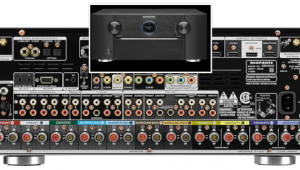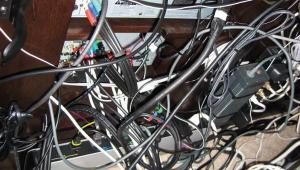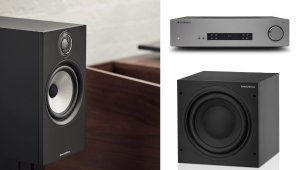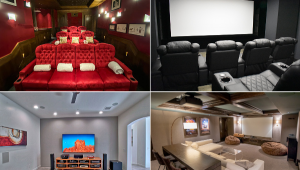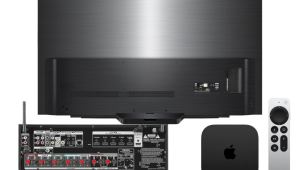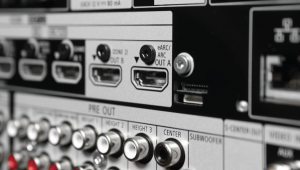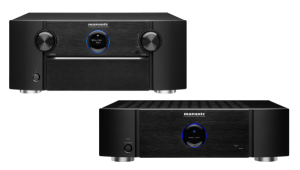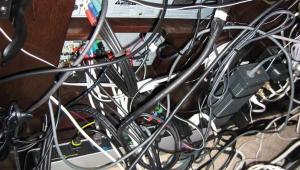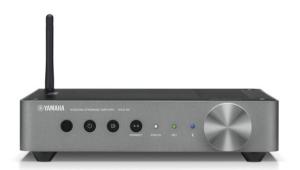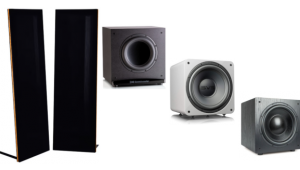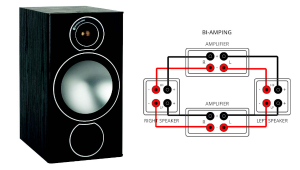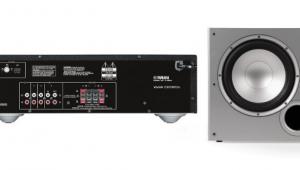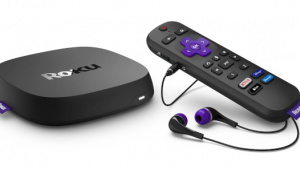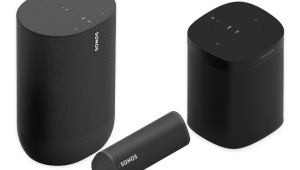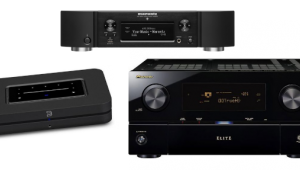70 inches for 10 feet? I dont think so.
LED vs. Plasma

Jeff Stern
If you're very critical of the picture quality, you have no problem with reflections, and you've had plasmas in the past, I'd stick with plasma for the new TV. The top-of-the-line D8000 plasma from Samsung is excellent (review forthcoming), as is the top-of-the-line VT30 from Panasonic (reviewed here and shown on the right above). Samsung's LED-LCD TVs are edgelit, which results in uneven illumination across the screen, especially in dark scenes.
At a seating distance of 10-12 feet, I'd definitely get a 65-incher. (The ideal size for a high-def screen at a seating distance of 10 feet is 70 inches.) You're right that plasmas generate more heat than LED-illuminated LCDs, but in South Carolina, you hopefully have air conditioning, so that really shouldn't be much of an issue.
If heat really is an issue for you and you prefer to go the LED-LCD route for that reason, I'd get an LED-backlit set such as the Sony HX929 series (reviewed here and shown on the left above). LED backlighting avoids the uneven illumination of edgelit sets, and it allows a feature called local dimming, which dims the LEDs behind dark areas and brightens the LED behind bright areas. However, it can cause halos around small, bright objects on otherwise dark backgrounds, though reviewer Tom Norton didn't see much of it on the HX929. I didn't see any haloing on the new Sharp Elite LED-backlit LCD TVs at the CEDIA Expo, but we haven't gotten one in for review yet, so I can't yet comment on its performance in any depth.
If you have an A/V question, please send it to askhometheater@gmail.com.
- Log in or register to post comments


The SMPTE recommends a minimum of a 30 degree viewing angle, and THX recommends a 36 degree viewing angle (26 degrees minimum for the back row of seats). According to http://myhometheater.homestead.com/viewingdistancecalculator.html that means to meet the SMPTE recommendation for a 16:9 screen at a 10 foot viewing distance, you need at least a 73.8 inch screen. To meet THX's recommended viewing angle, you need an 89.5 inch screen.
Obviously that's much larger than what 99.9999% of people have in their homes, but if you want to re-create the authentic cinema experience in your home theater, those are the numbers you should try to follow.

Personally, for a siting distance of 12-15 feet, I think the best choice is a two piece DLP projector or, if you don't have a dark dedicated Theater Room, try the new Mitsubishi 92" DLP rear projector. I think This publication needs to do more reviews on these giant rear projection alternatives to flat panels over 65".

Get a Vizio XVT 554. 55" of local dimming LED beauty without the exorbitant price of that Sony.
Great reviews and a great set.
Try Amazon! Half the price of the Sony.
\U willLOVE it!!!!
